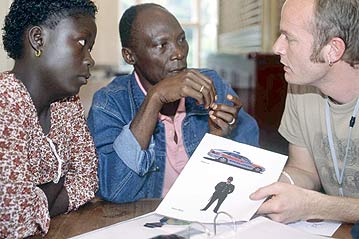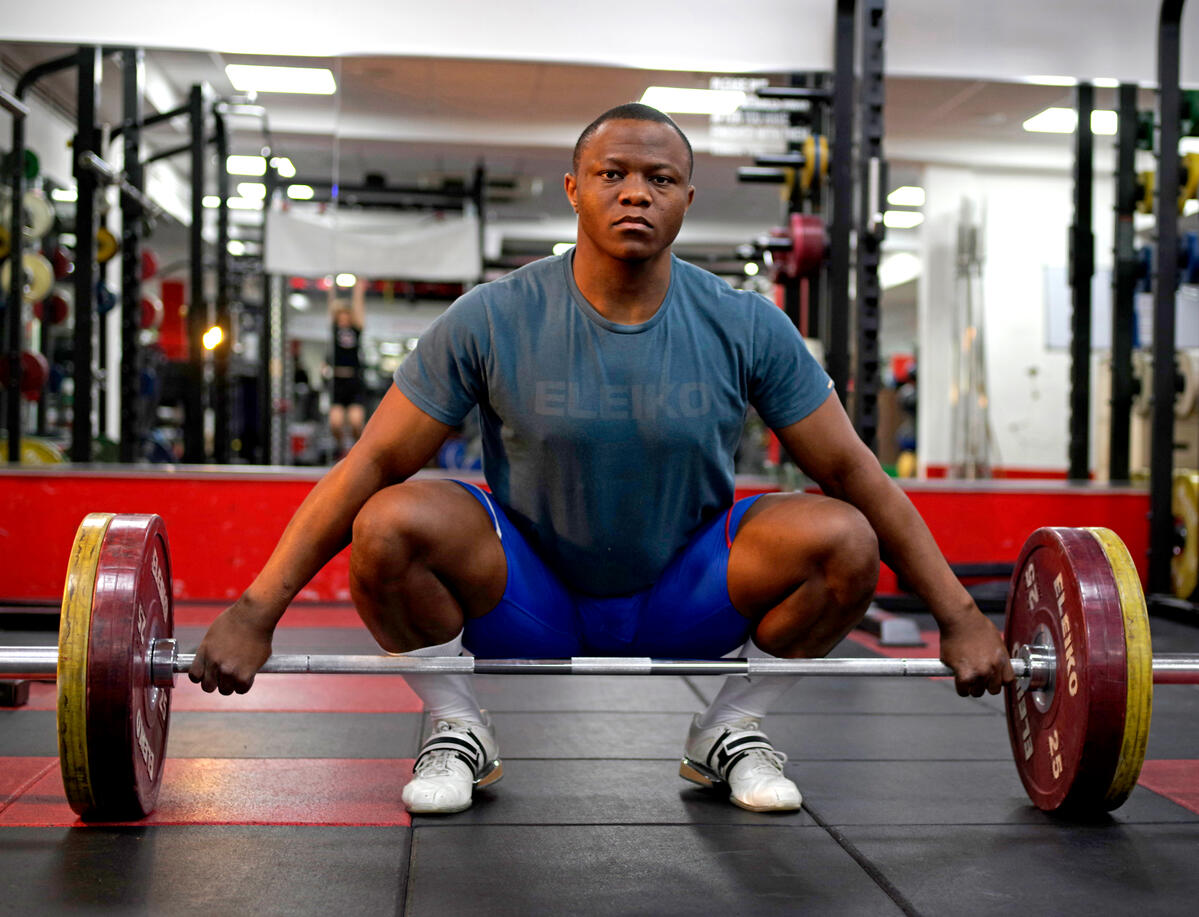Exiles in UK criticise pre-election focus on asylum
Exiles in UK criticise pre-election focus on asylum

LONDON, May 9 (UNHCR) - In the run-up to last week's general elections that saw the ruling Labour party maintain a diminished majority, some asylum seekers and refugees in the United Kingdom said they were concerned about the heightened focus on immigration and asylum during the campaigning, saying it fed negative sentiments towards foreigners rather than a better understanding into the reasons people are forced to seek asylum.
Harun*, an asylum seeker from western Sudan's Darfur region, described the recent campaign's focus on foreigners living in the UK as worrisome. He said he feared that the negative campaigning around asylum and immigration by some politicians helped to incite recent violent attacks on two asylum seekers who ended up in hospital.
"I don't feel good about this, who knows, I may be the next one," said Harun, who fled his country after his cousin was killed and his shop and property pillaged. "That is why I am now so scared to go out at night."
His sentiments were shared by Katura*, who left Zimbabwe a year ago after she was kidnapped by men she believed were ruling ZANU-PF (Zimbabwe African National Union Patriotic Front) operatives, and repeatedly raped. Before her abduction, Katura said she was a member of the anti-governing party Movement for Democratic Change, and a teacher studying to become a lawyer.
She said she felt disappointed and rejected. "People now treat us badly because they feel the public and government don't want us anymore."
Abdullah Latif, from Darfur, is more fortunate as he was granted refugee status in the UK. Although requests for asylum in the UK have dropped 61 percent since 2002 when Britain led industrialised states receiving asylum seekers - a trend some UK politicians noted in the run-up to last Thursday's vote - Abdullah is deeply concerned about the tone of the recent political debate on asylum and immigration.
"Asylum seekers are not happy with the way they are portrayed in the debates. It only builds tension and discrimination," he said. "It has created a heated environment especially in the north of the country where we are having it rough."
He added, "Asylum seekers know where it hurts. They are the ones who have been systematically persecuted. It is disappointing to see their claims turned down and asylum seekers pushed to roam the streets where they are in constant fear of being arrested and deported to a country where the chance of being killed is very high."
Abdullah, who now runs London's Darfur Centre for Human Rights, said of the recent pre-election rhetoric: "There are people who are not using the media in the right way. If they come to understand us, and that we are in a difficult situation and desperately fighting for our survival, I believe they will change their minds and give us priority."
Harun agreed, and would like Britons to consider his plight rather than simply paint him as a "bogus" asylum seeker. "Asylum is a small word but with big meaning," he said. "We have serious problems in Darfur, and I am begging those in charge to please give priority to our matter."
* Names changed
By Ahmed Momoh in London, United Kingdom




